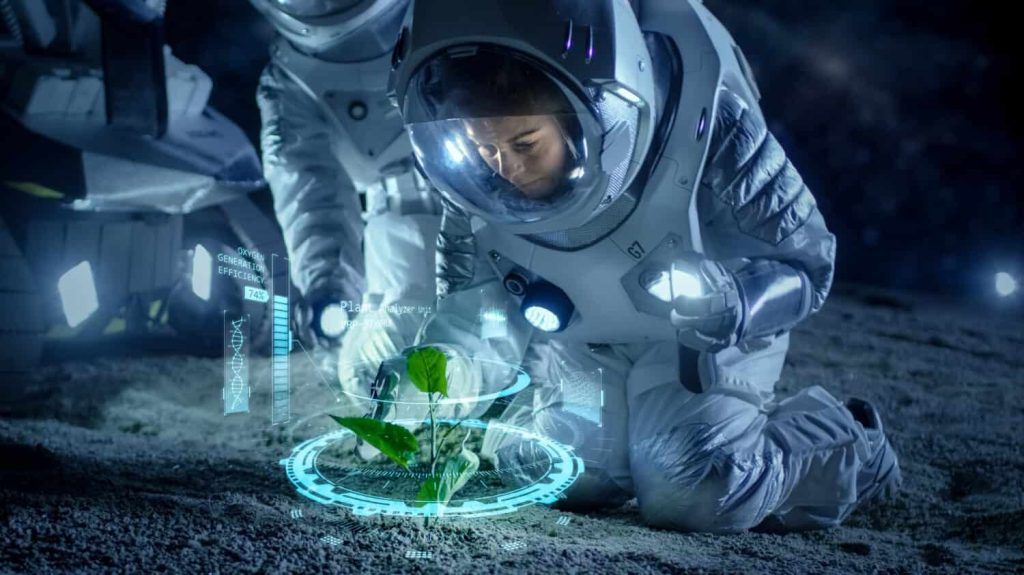
In the year 3100, the world as we know it has transformed dramatically, with advanced technology and space exploration becoming an integral part of everyday life. This future is vividly imagined by Dr. Najeeb Al-Nauimi in his book “3100.” The novel takes readers on a journey through a technologically evolved society, presenting both the marvels and challenges that come with such advancements.
The story begins with a startling discovery deep within the Earth’s core: a massive rock concealing a reservoir of water three times the volume of Earth’s oceans. This discovery sparks fears of potential geological disasters, but the advanced technology of the era provides reassurance. The protagonist’s family, including his children Nasser and Amina, lives in a world where robots and humans coexist harmoniously. The children’s education is guided by a robot teacher, reflecting the seamless integration of technology into daily life.
As the story unfolds, readers get a glimpse into the daily routines and technological advancements that define life in 3100. The protagonist’s interaction with his robot, Saif, showcases the sophisticated capabilities of robots in performing complex tasks and ensuring human comfort. Despite the availability of brain chips that can enhance knowledge acquisition instantly, the protagonist emphasizes the importance of classical education for his children, highlighting a balance between technological progress and traditional learning.
One of the central themes of the book is the transportation of water from beneath the Earth’s rock to Mars. This ambitious project aims to create seas and an atmosphere on Mars, making it habitable for humans. The technical processes involved, such as the use of smart hoses and balloons to manage water extraction and transportation, are meticulously detailed. The challenges and careful planning required to avoid ecological disasters on Earth highlight the complexities of such endeavors.
Amidst the scientific and technological marvels, the book also delves into personal reflections and family dynamics. The protagonist’s interactions with his family, especially his daughter Amina, bring a human touch to the futuristic setting. Moments of joy and concern, such as Amina’s excitement about catching a fish and the protagonist’s worries about geological threats, add depth to the characters and make the advanced world relatable to readers.
Mars is depicted as a new frontier for human civilization. The protagonist’s son, Nasser, plays a pivotal role in studying the biological and environmental changes on Mars. The creation of lakes and the potential for vegetation and oxygen production are key aspects of the transformation process. The story describes the efforts to balance the ecosystem by introducing species from Earth, reflecting the challenges of creating a sustainable environment on another planet.
The planet Fariha serves as a symbol of hope and safety in the story. The protagonist’s plans to move his family to Fariha underscore the search for a secure and prosperous future. Fariha is described as a haven with advanced technology and a harmonious blend of natural and artificial elements. The protagonist’s interactions with other scientists and leaders about the water transfer project further emphasize the collaborative efforts to ensure humanity’s survival and progress.
“3100: A New Discovery” is more than just a science fiction tale; it is a thought-provoking exploration of humanity’s potential and the ethical considerations of technological advancements. Dr. Najeeb Al-Nauimi successfully combines scientific imagination with human emotions, creating a compelling story that resonates with readers. The book encourages reflection on our current trajectory and the importance of balancing technological progress with ecological preservation and ethical responsibility.
Through its detailed depiction of life in the year 3100, the novel challenges readers to think about the implications of our actions today. It inspires hope for a future where humanity can thrive on Earth and beyond, highlighting the potential for a harmonious coexistence with advanced technology. The vision of transporting water to Mars and transforming it into a habitable planet serves as a metaphor for the possibilities ahead if we responsibly pursue technological innovation.
“3100: A New Discovery” offers a fascinating glimpse into a possible future where technology and humanity are twisted together. It prompts readers to consider the ethical implications of technological advancements and inspires a vision of a future where we can achieve great things while preserving our planet and humanity. Dr. Najeeb Al-Nauimi’s imaginative storytelling and thoughtful exploration of future possibilities make this book a must-read for anyone interested in the future of our world.